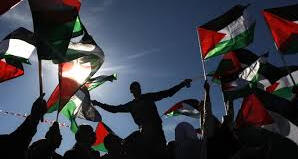PALESTINE

Info about Palestine
How to help
What really happend?
The term Palestine first appeared in the 5th century BCE when the ancient Greek historian Herodotus wrote of a "district of Syria, called Palaistinê" between Phoenicia and Egypt in The Histories. Soon, Muslims began to started to roam the land and call Palestine their home. The area was taken by mostly Muslims.Palestine was first established as a country in 1988. Before this establishment, the Jews were told to leave Egypt according to the Emperor. When the people of Palestine had heard about The Jewish's situation, they had invited the people to have a little bit of the Palestinian area and claim it their own land.It was soon when the Jews (Israel at this time) found out the popularity of Muslims. They had their own, book, history, prophet, way of worship, God, beliefs, etc. That was when a spark of jealousy grew in the people. 1948 was when Israel had attacked Palestine. Over the years, it has grown more aggressive and has gained more attention.Note: I am dearly sorry if I have told the history wrong. This is all based on my research and stories I've been told as a child.
What is happening now?
The Israeli-Palestinian conflict has been marked by cycles of violence and military operations, particularly in the Gaza Strip. Israel's military actions in Gaza have been extensive and have drawn significant international scrutiny.Israeli Military Actions
1. Airstrikes and BombardmentsSince October 2023, Israel has conducted numerous airstrikes across Gaza. By early 2025, over 40,000 locations in Gaza had been bombed, resulting in widespread destruction of civilian infrastructure, including schools, hospitals, and refugee camps. The Gaza Health Ministry reported over 46,700 Palestinian deaths, with a significant portion being women and children. Human rights organizations have condemned these actions as indiscriminate and in violation of international law.2. Ground Operations and SiegesIn October 2024, Israel initiated a siege of northern Gaza, aiming to force evacuations by designating the area a combat zone. This led to the destruction of roads and the prevention of aid entry, leaving many civilians trapped. Human rights groups have characterized these actions as potential ethnic cleansing.3. Use of Human ShieldsReports indicate that Israeli forces have used Palestinian detainees, including civilians, as human shields during operations. This practice has been documented by various sources and is considered a violation of international humanitarian law.4. Blockades and Humanitarian ImpactIsrael has imposed blockades on Gaza, restricting the flow of essential goods and services. These measures have led to shortages of food, medicine, and fuel, exacerbating the humanitarian crisis. The United Nations and other international bodies have condemned these actions, warning of potential famine and widespread suffering.International Reactions and Legal ConsiderationsThe international community has expressed grave concern over Israel's military actions in Gaza. Human rights organizations and UN officials have accused Israel of committing war crimes, including indiscriminate attacks on civilians and the use of prohibited tactics. However, enforcement of international law has been limited, partly due to geopolitical dynamics and the support Israel receives from certain nations
Conclusion
Israel's military actions in Gaza have resulted in significant loss of life and widespread destruction. While Israel asserts that these operations are necessary for security reasons, the scale of civilian casualties and damage to infrastructure has drawn widespread condemnation. The situation remains complex, with ongoing debates about the legality and morality of the actions taken by all parties involved.
Ways to help Palestine
New York stands with Palestine!Islamic AidTake ActionJustice for Iyad Al-HalakDonationsCarrd for more options